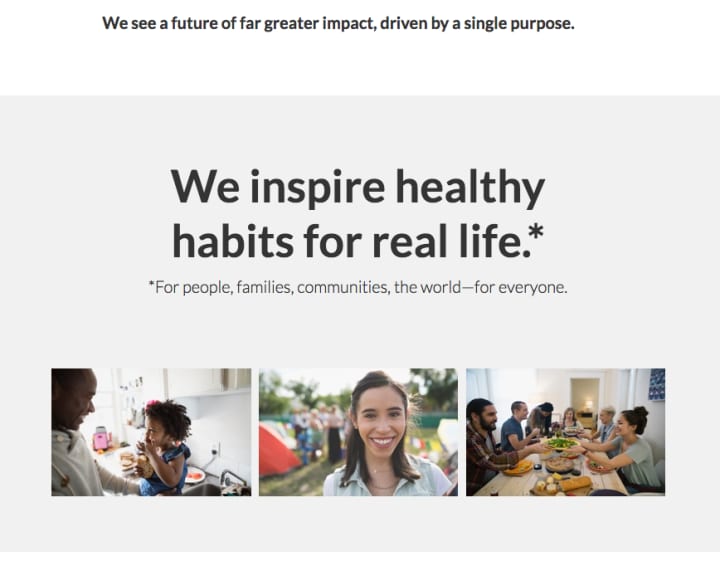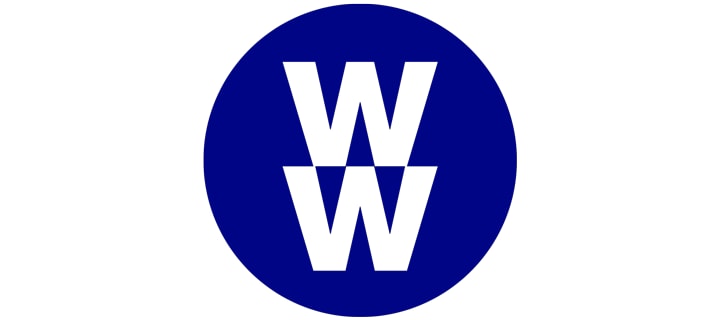Making a Big Change
Weight Watchers has helped millions transform their lives, now they are attempting to transform their brand.

Perhaps the boldest move that a company can ever take is to try and rebrand itself. Marketing geniuses and advertising agencies, often armed with long PowerPoint presentations and seeming irrefutable statistical evidence on shifting consumer demographics and pyschographics, have time after time successfully made the case to corporate executives that their company's entire image and/or its major products needed an extreme makeover. Indeed, an entire naming industry exists to help companies come-up with new corporate identities and the ideal names for their offerings.
Quite often, companies change their names in their infancies—before they are worth billions! For instance—and you can amaze your friends at the bar or water cooler with these factoids—the leading search engines of today were once not named Google and Yahoo! In the first case, Larry Page and Sergey Brin’s search engine was initially named "BackRub," and of course, now we know it as a little thing called "Google." Likewise, the search engine that we now call "Yahoo was first marketed as “Jerry’s Guide to the World Wide Web.” In both cases, I think 99.9% of both business experts and the rest of us would say that those were good moves! And this same thing happens on a much smaller level all the time as small businesses grow and expand beyond their original purposes, products and markets (i.e. Smith's Regional Supply becomes Smith's National Source becomes Smith's Worldwide).
Over the years however, a number of major companies have changed their corporate identities from a known quantity to something that sounded more hip, more modern, more substantive—at least to a focus group or two! Some of the more memorable ones in business history have been:
- Google to Alphabet
- Kentucky Fried Chicken to KFC
- Datsun to Nissan
- ValuJet to AirTran
- Lucky to LG Electronics
- Philip Morris to Altria
- Andersen Consulting to Accenture
The degree to which these name changes "worked" can be argued a great deal in marketing and branding circles. Does anyone besides those in investment circles talk about Alphabet, rather than Google? Do you still think "fried foods" when you hear KFC? Did changing names for AirTran make air travelers forget a terrible airplane crash experienced by ValuJet? What percentage of consumers who today buy LG TVs, phones, appliances, etc. would buy them if the brand name was "Lucky?"
However, history is littered with literally decades of missteps in this area—think famously when Coca-Cola introduced "New Coke" in the 1980s! Things can also get "lost in translation," as in the famously cautionary tale of how the Chevrolet Nova translates to "no go" in Spanish. Likewise, advertising slogans do not work so well outside of Inglés, as when the fabulously successful "Got Milk?" campaign became "Are you lactating?" when translated into Spanish.
And so when a company looks to rebrand itself with a new moniker, this is a moment of great opportunity—and great peril! It's a strategy that you really, really only have one shot at getting it "right"—so it's nothing less than a high-risk, high-return proposition for top executives to initiate—and it has to be executed flawlessly to work—else you risk not just your brand, but your very existence! The venerable brand Weight Watchers now is embarking on just such a change, marking an inflection point for the company.
Weight Watchers becomes WW
With much fanfare, Weight Watchers CEO Mindy Grossman announced on Monday, September 24th that henceforth, the company would be known as WW. Now, taking a company that has almost universal name recognition and shedding every letter but its two initials should be seen as nothing less than a bold move! But, is it a good one? Certainly, there's good arguments on both sides.
To the company's credit, the move is predicated on a strategic shift for Weight Watchers that has been underway for some time. The company has been on a real positive wave in recent years, especially after an investment from one Oprah Winfrey in 2015. As has been proven many times before, with everything from books to cars, when Oprah gets behind your product, well, good things happen! Post-Oprah, the company saw a dramatic increase in Weight Watchers programs and users of its mobile app, and its management fully credits the "Oprah effect" as being one of the key drivers behind its recent growth.
However, the company indeed faced a conundrum. As it sought to evolve into more of a "lifestyle brand," focusing not just on weight control and weight loss, but on mindfulness and overall wellness. Further, the very notion of watching one's weight—while yes, being urged to be a lifelong concern—often meant, in reality, that the company and its programs/offerings were something that would only be utilized in the short-term by many consumers, rather than adopted and used (read, generating revenue) over the long-term. Thus, a shift in strategy was indeed a textbook play to position the firm for greater success over the long-term.
From WW's "Impact Manifesto"

As a strategy consultant and management professor, I can't really fault the company's executives for looking at the playing field before it and seeing the name change as a good move. Certainly, they see the move into being not just a lifestyle brand, but a life-long brand, as positioning the company for success in an area that is indeed ripe for growth in the busy, complicated, stress-filled, and yes, carb-laden age in which we live. Long-term then, I see the move as an overall positive, positioning the company in a much-bigger potential market with really no limits on growth—both domestically and world-wide. However, I do have some real issues with the execution of the changeover.
First, let's look at the brand equity issue. This is first and foremost because there's a lot of it! Weight Watchers might not be up there with McDonald's, Starbucks, or Coca-Cola (coincidentally, all things that could lead one to be a Weight Watchers customer!) in terms of brand recognition. However, by any measure, Weight Watchers would certainly be among the top 50 or 100 brand names in the market today. It is tough just to sweep aside decades worth of brand-building that has made your company a household name and a de facto choice for those—particularly the female half of the population—seeking to make changes in their eating habits and lose weight. That brand recognition is a valuable corporate asset—perhaps the most valuable asset for the company (well, if you don't count Oprah!). As such, it is not just a billion dollar or more balance sheet item for the firm—it is a living, breathing "thing" in the marketplace—a name instantly recognizable by consumers who understand what Weight Watchers is for by the very name of the company—until now. As such, that brand equity is very hard to, effectively, seek to simply walk away from for the prospect of a wider, bigger playing field as a health, wellness, and mindfulness brand.
The New "WW" Logo

Secondly, I would take issue with the name change itself. "WW"??? Is this too generic? Does it bring to mind—for those of us of a certain age—the "WWW" prefix that one had to type back in the dark ages to get to a website? While "WW" certainly enables the company to have a clean, simple, readily identifiable symbol and brings great possibilities for the company from a marketing perspective, especially internationally ("WW" can't be "lost in translation!"), I would worry about the shift leading to a lack of identity for a company that has been clearly identified in its former life.
Lastly, whenever a company changes a product name—or seeks to compete with a firmly established product in the marketplace, consumers have a way of following the script set out by the market innovator. For instance, how many of us refer to any facial tissue as a Kleenex? The same can be said for items ranging from Chapstick and Crock-Pots to Jacuzzis and Jet Skis. Once the mark has been set, it is tough for any company—be they the established firm or an upstart competitor—to change the generic consumer's language. From a consumer behavior perspective then, I would argue that I just don't see folks saying that they're going to a "WW" meeting tonight! I believe that the Weight Watchers name has itself become—over time—such a "generic brand name," and as such, there will be large swaths of its consumer base—past, present, and indeed future—who will still refer to the company's offerings by the old name, no matter how much effort—and money—is thrown at the rebranding.
However, with all that being said, I still believe that the company's management has taken a bold step in making the name and identity change. They have but one shot to get it right—and some of the issues raised here will certainly be both short and long-term concerns moving forward. Yet, by not having an identity tied solely to weight loss and positioning the firm as a lifelong lifestyle brand that consumers can make use of its products and service offerings for many purposes—and not just for themselves, but for their families, WW (yes, still may disagree with the new moniker, but we'll get used to it) has set forth a strategy that should serve itself—and potential customers—well into the future. The move is indeed bold and audacious, and with proper attention to some of the issues raised here in regards to execution, the strategic shift should pay dividends for WW's stakeholders for years to come.
About the Creator
David Wyld
Professor, Consultant, Doer. Founder/Publisher of The IDEA Publishing (http://www.theideapublishing.com/) & Modern Business Press (http://www.modernbusinesspress.com)







Comments
There are no comments for this story
Be the first to respond and start the conversation.